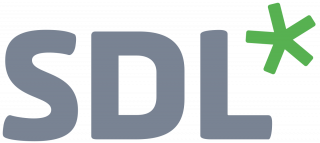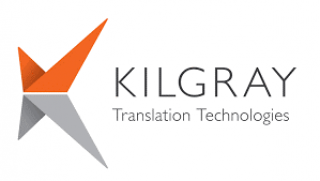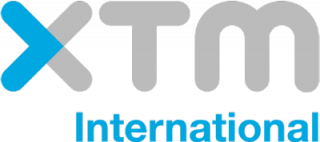Courses are expected to take place online in summer 2023
Applications are now welcome.
To be an efficient and competitive translator, you need to make the most of the available translation software as well as your own translation capabilities.
17th July - 11th August 2023 (All Languages)
The world today is a competitive arena where efficiency is key. This is especially true for people working in the translation profession. To survive in their career, professional translators need to rely on various translation software which aids and supports them. The most widely used translation technologies include translation memory programs and terminology management software.
The course is designed for professional translators and students of translation who wish to learn more about translation technology which can help them in their careers. It is an intensive, practical course which will be of benefit to professional translators and translation students and teachers alike.
- Course Structure
Module One: Translation Technology 1 - Trados Studio 2021
This module will start with a brief introduction to the concept of translation components (memories, termbases and editors) and the features of market-leading SDL Trados. Students will translate scientific and technical materials taken from different authentic contexts and learn how to use the software to facilitate this process. By the end of the module you will be conversant with the main principles of the latest version of SDL Trados and the underlying principles of translation technology. You will be also introduced to the main principles of cloud-based software and have the chance to use brand new SDL cloud technologies.
Module Two: Translation Technology 2 - memoQ translator pro
Module two will cover memoQ. Rated number one TMS by Common Sense Advisory, memoQ is a tool that has become extremely popular among translation companies and freelancers thanks to its flexible interface and innovative features. Sessions will explain the main differences between memoQ and other similar software and will cover the main functions of this useful programme. Participants will be guided through the processes of translation using memoQ and its components, including LiveDocs, and supported to build their own resources. By the end of the sessions, students will be able to use memoQ for translation projects and project management and manage its settings at an advanced professional level.
Module Three: Cloud systems - Introduction to Phrase, XTM and Transifex
Module three looks into cloud technology in depth. It is split between two main software packages: Translation Tools and Website Localisation Tools. Phrase is a flexible and user-friendly cloud-based translator's workbench offering translation memory, terminology management, and integrated machine translation. XTM is a robust, scalable technology, ideal for translation and project management, which combines all elements of a translation environment in a comprehensive customer-focused platform. Transifex is a translation and localisation platform that allows live preview of web content while editing and superior collaboration and project management features.
Module Four: Essential skills for translators
Each week will focus on one or more of the topics below. Participants will have the chance to get an introduction to each of these areas as well as practise using the software available in the lab:
- Project management
- Machine translation
- Terminology extraction
- Software and Videogame Localisation
Workshops will be interactive and feature real-world examples from many areas of professional translation.
There will be four classes each week, lasting three hours each (total 48 hours). Coursework will be given after each class and there will be ample opportunities for practice and feedback. Participants are expected to spend time in the lab in order to practise on the software and perform tasks using the various tools they will be taught.
- Certificate of Completion
At the end of the course, you will receive a Certificate of Completion, provided that attendance has been satisfactory and you have completed your course projects.
- Resources
UCL has a well-equipped multimedia Translation Lab with state-of-the-art facilities. You will have unlimited access to computers and the internet, translation software workstations, video and DVD viewing facilities, and subtitling workstations to allow you to work autonomously on your projects.
Participants will be working remotely in Summer 2021 with secure access to all software. It is essential that you have a stable and strong Internet connection in your environment in order to attend this course smoothly. The following information regarding resources is only relevant when the course takes place on campus. The 2022 course will take place online.
- Tutor
This course is taught by Emmanouela Patiniotaki, a professional and academic with more than 10 years of experience in language services. Emmanouela teaches translation technology closely following the trends of the industry and designs her courses based on what she foresees to be the next step in translation and technology. She has worked in various companies, including IBM, and provides services, among others on Google, Microsoft and Apple projects. This course was designed in 2013 and has been running with success ever since, welcoming students and professionals from all over the world.
- Who Should Apply
The course is targeted at professional translators as well as students and teachers of translation. The course is taught in English and is non-language specific so any language combination is welcomed.
- How to Apply
To apply or receive further information:
Email your application form to Emmanouela Patiniotaki (selcs.centras-professional@ucl.ac.uk). Please write ' Intensive Course - Technology' in the subject line of your message.
The application deadline is 30 June 2023. Group bookings will only be considered by 15 June 2023. Course confirmation will be emailed to you subsequently along with payment instructions.
- Fees and Payments
Tuition Fees
• £895 - Standard fee
• £805 - Affiliate rate* (also for returning participants)
• £761 - CenTraS students/graduates/academic visitors/alumni
*CenTraS professional courses affiliates: Institute of Translators and Interpreters (ITI), Chartered Institute of Linguists (CIoL), The Subtitlers' Association (SUBTLE), and local organisations including ATAV, ATA, APTRAD, PEM and Translators and Interpreters Australia. For information or to add your organisation to the list of affiliates, please contact the Professional Course Co-ordinator.Payment and cancellations
Once you have been offered a place on the course, you will be sent details of how to pay via the University Online Store:
Please note:
- All payments must be made in full, in Pounds Sterling by debit or credit card.
- Places are not confirmed until payment is received, which must be at least one week before the course start date.
- Accommodation
The following information regarding accommodation is only relevant when the course takes places on campus. The 2022 course will take place online. If you are interested in booking temporary accommodation in the University's Halls of Residence, please email residences@ucl.ac.uk or visit the accommodation website.
- Further Information
If you have any queries about this course, please contact us via e-mail: selcs.centras-professional@ucl.ac.uk
- FAQs
Q. What does "Translation Technology" mean?
A. "Translation Technology" refers to the fact that this online course combines aspects of translation (i.e. practical translation exercises) with aspects of technology (i.e. understanding the structure of software/resource and help files).Q. Do I have to be a professional translator in order to take part in this course?
A. No, you don't have to be a professional translator to take part in this course.Q. Once I start the course do I have to complete it within 3 months or can I complete it in my own time?
A. There is a fixed start and finish date for this course, with reading and tasks to be completed every week, either within a group with other participants or individually by yourself. This means you must complete the course within the 3 months, however, you can organise your workload throughout the week (including weekends) as you wish.Q. Is there any support from a tutor online?
A. Yes. The course tutor is available on set days to reply to any questions and provide support.Q. How easy is it to find a job with this qualification?
A. Completing this course will give you an additional qualification which is always a good thing. We can't say how easy it is to find a job with it as it also depends on what else you have done in the past and where you live.Q. Please tell me a little bit about the qualifications of the tutor.
A. The author and tutor of this online course has 20 years full time experience as a localiser and is actively working as a localiser. The tutor has an MSc in Technical Translation (Mechanical and Electrical Engineering), a City & Guilds Qualification in Teaching Adults, has completed an online course on e-learning (design and implementation) and has taken part in a 3-year EU-funded project as an industry partner with several European universities whose aim it was to create an online Masters in Translation. The tutor has also been teaching on the MSc in Scientific, Technical and Medical Translation with Translation Technology at CenTraS. The tutor is online on set days for any questions that participants may have during the course.Q. What is the language of communication with the tutor and other participants in this course?
A. The language of communication with the tutor and other participants in this course is English. All the course material (weekly units) is provided in English. There are two practical translation tasks, and participants will complete these in their chosen language combination and then compare their translation with a master translation and write a commentary.Q. I understand that the course is particularly appropriate for those working OUT OF English (e.g. into French or German). Would the course be equally appropriate for translation INTO English?
A. The majority of localisation work in the real world is OUT OF English as most software is being developed in English first and then localised into other languages. The volume for localisation INTO English is a lot less than out of English. From experience, translators working OUT OF ENGLISH are most likely to work as localisers whereas translators working INTO ENGLISH in this field are more likely to work as project managers, project manager assistants, language engineers, functional testers, engineers, or screenshooters.
Q. Why are you offering more FROM English combinations than INTO English combinations?
A. Because this reflects the actual demand on the market. However, if you are interested in taking this course and do not see your language combination, please contact us as we can normally add more language combinations if required.
Q. I live on the other side of the world, how can I pay the fee?
A. The course must be paid for by credit or debit card, through our online payment facility.
Q. How many hours would I have to dedicate to the course per day or week?
A. Between 6 and 10 hours per week.
Q. What type of certificate do I get once I have successfully completed the course?
A. A certificate of completion, signed and stamped by the Centre for Translation Studies (CenTraS) which is part of University College London (UCL).




 Close
Close

